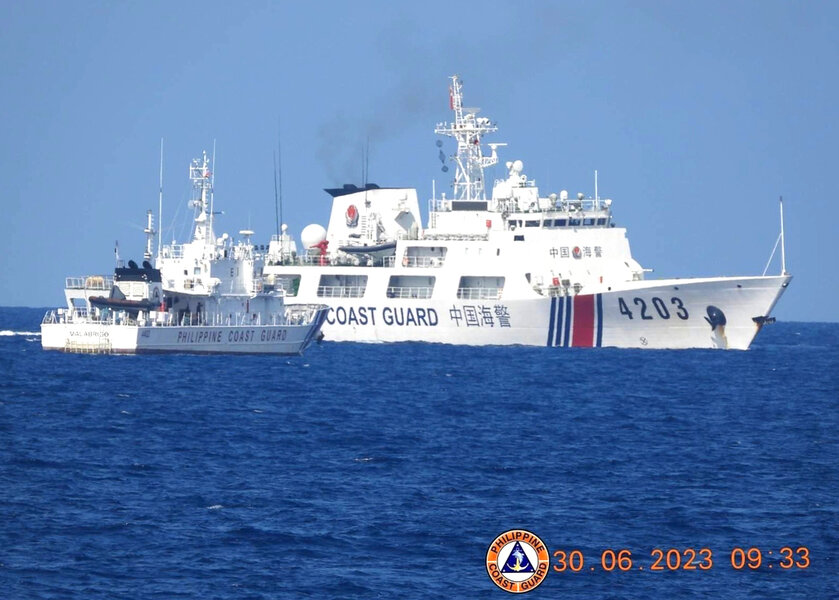High examples for peace on the high seas
Loading...
Maritime borders in the South China Sea are, to say the least, a touchy topic. Last week, for example, Vietnam banned distribution of the new “Barbie” movie because it includes an image of a map showing China’s ownership of islands claimed by Hanoi. Violent clashes between China and the various countries in this vital waterway have become increasingly common. That is why, as the 10-member Association of Southeast Asian Nations meets this week, it is worth noting two recent examples of peaceful ways to resolve these watery disputes.
In December, ASEAN’s largest member, Indonesia, signed a historic agreement with Vietnam to demarcate their respective offshore economic zones after 12 years of talks. Then last month, Malaysia and Indonesia inked a deal to delimit their territorial seas in parts of the Strait of Malacca and the Sulawesi Sea after 18 years of negotiations.
Both treaties were accomplished without the parties going to the International Court of Justice, as the Philippines had to do to assert its island claims against Chinese encroachment – though it won a strong ruling in 2016. ASEAN leaders know they must not only clean up their own maritime disputes but also do so through peaceful negotiations. That sets a model of trust that might push China to do the same under the norms and principles of the 1982 United Nations Convention on the Law of the Sea.
“If Southeast Asian ... claimant states could settle their bilateral maritime boundary disputes, collectively as ASEAN, then they might have a stronger position to negotiate a Code of Conduct for the South China Sea ... or some other mechanism with China,” wrote Bich Tran, a fellow at the International Institute for Strategic Studies, in Fulcrum.
In recent decades, China’s assertive taking of islands more than 1,000 miles from Chinese shores has resulted in many clashes with ASEAN states. In response, the bloc’s members – Brunei, Cambodia, Indonesia, Laos, Malaysia, Myanmar, the Philippines, Singapore, Thailand, and Vietnam – plan to hold their first joint navy drills near a disputed area of the South China Sea in September.
The more that Southeast Asian states abide by the Law of the Sea treaty, “the more the region can demonstrate resistance and agency against China’s increasingly bold claims and actions,” stated Ms. Tran. Keeping the high sea peaceful will require sticking to the highest principles of international maritime law.





